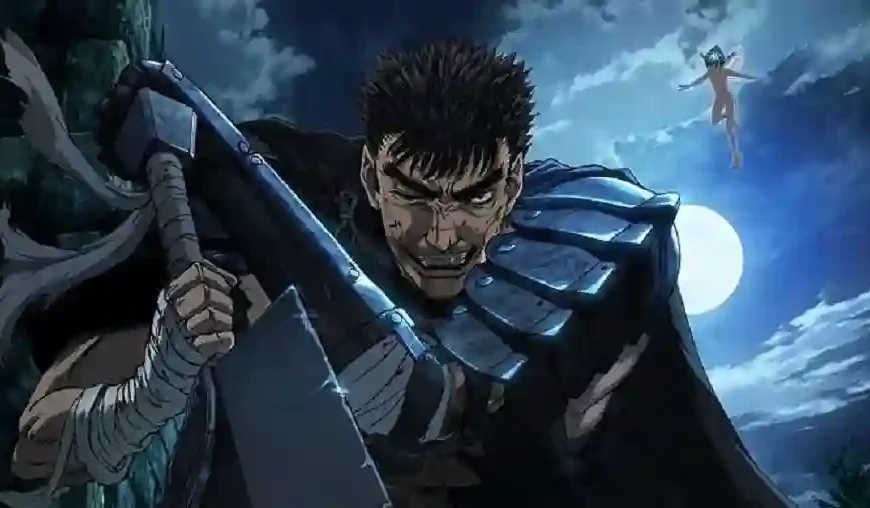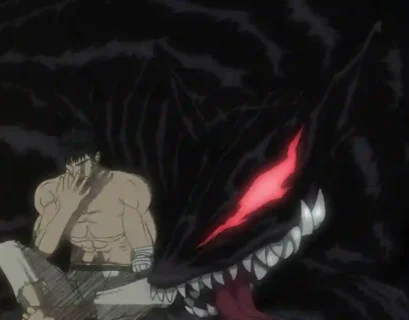Over three decades have passed since Kentaro Miura first introduced readers to the dark and brutal world of “Berserk.” In that time, the series has become more than a manga; it has evolved into a cultural phenomenon that transcends borders and mediums. This retrospective analysis explores the profound cultural impact of Berserk, examining its influence on the realms of manga, anime, and beyond.
A Dark Fantasy Masterpiece Emerges
Berserk made its debut in 1989, a time when the manga landscape was evolving, and the boundaries of storytelling were being pushed. Miura’s creation stood out for its relentless narrative, complex characters, and a dark fantasy world that defied conventions. From the very beginning, Berserk signaled a departure from traditional shonen tropes, offering readers a mature and introspective journey.
Manga Redefined: A Shift in Tone and Themes
Berserk’s impact on the manga industry cannot be overstated. Miura’s unflinching exploration of themes like trauma, betrayal, and the human condition set a new standard for storytelling. The series introduced a level of maturity and complexity that resonated with readers seeking narratives that transcended the fantastical and delved into the realms of existentialism and morality.
The success of Berserk paved the way for other manga creators to experiment with darker themes and intricate character development. The influence of Miura’s work can be seen in subsequent manga series that tackle mature subject matter, breaking away from the more formulaic approaches prevalent in the industry.
Anime Adaptations: Expanding the Reach
While Berserk’s impact on the manga world was substantial, its influence extended even further with the release of anime adaptations. The 1997 anime adaptation, though limited in its coverage of the manga, introduced a new audience to the grim and visceral world of Guts. The 2016-2017 anime adaptation, while met with mixed reviews due to animation quality, brought Berserk to a new generation of viewers.
The anime adaptations, flawed as they may be, played a crucial role in expanding Berserk’s cultural reach beyond the pages of manga. The haunting opening theme, “Hai yo” (meaning “Ashes” in English), became synonymous with the series and contributed to the overall atmospheric experience.
Global Appeal: Breaking Cultural Barriers
One of the most remarkable aspects of Berserk’s cultural impact is its ability to resonate with audiences worldwide. While deeply rooted in Japanese folklore and traditions, the themes explored in Berserk are universally relatable. Guts’ struggle against fate, the exploration of the human psyche, and the consequences of unchecked ambition are themes that transcend cultural boundaries.
The global appeal of Berserk is evident in its dedicated international fanbase. The series has been translated into multiple languages, and fan communities have sprouted up around the world. The iconic imagery of the Dragonslayer and the brand of sacrifice has become emblematic in both manga and gaming cultures.
Influence on Dark Fantasy in Gaming
Berserk’s cultural impact extends into the realm of gaming, where its influence can be felt in various titles. The “Dark Souls” series, developed by FromSoftware, draws clear inspiration from Berserk, both thematically and aesthetically. The bleak atmospheres, grotesque monsters, and themes of despair and perseverance echo the spirit of Miura’s creation.
Other video games, such as the “Devil May Cry” series and “Bloodborne,” also bear the marks of Berserk’s influence. The series has become a touchstone for game developers seeking to infuse their creations with the same sense of foreboding and existential weight that defines Berserk.
Legacy Beyond Kentaro Miura’s Passing
The unexpected passing of Kentaro Miura in 2021 left fans mourning the loss of a visionary storyteller. However, Berserk’s cultural impact endures. The legacy of Guts’ journey and the nightmarish world he inhabits continues to shape the landscape of dark fantasy across various mediums.
In the wake of Miura’s passing, discussions about the completion of the manga and the future of Berserk have sparked conversations about artistic integrity and the responsibility of creators to their work and audience. The ongoing dialogue surrounding Berserk’s legacy reflects its enduring significance in the cultural consciousness.
Conclusion:
As we reflect on Berserk’s cultural impact, it’s clear that Miura’s creation has left an indelible mark on the world of storytelling. From its inception as a groundbreaking manga to its expansion into anime, gaming, and global popular culture, Berserk has become a touchstone for those seeking narratives that challenge, provoke, and resonate on a profound level.
While the journey of Guts remains unfinished, the impact of Berserk is anything but incomplete. Its influence continues to reverberate through the dark fantasy genre and serves as a testament to the power of a singular vision to shape the cultural landscape for generations to come. Whether experienced on the pages of a manga or in the virtual realms of gaming, the shadows of Berserk continue to cast a long and enduring legacy.











